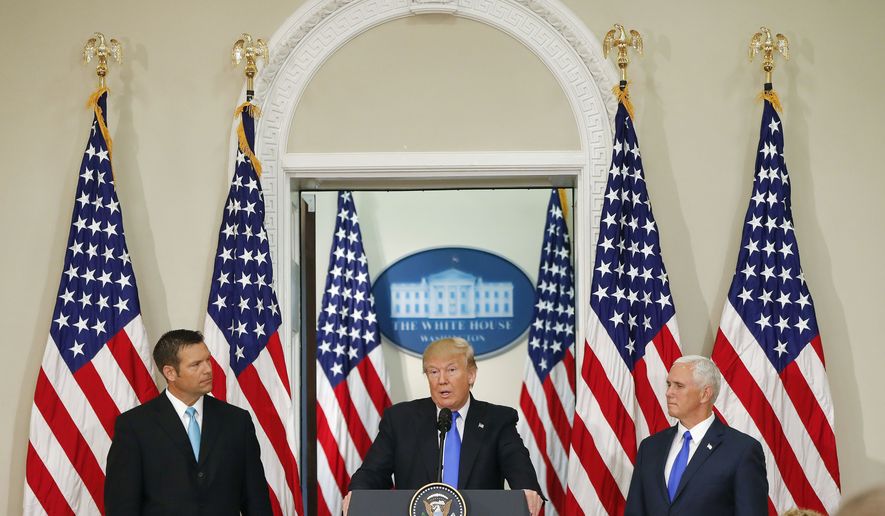Since the announcement of his Presidential campaign, there has been a near constant stream of mockery targeting Donald Trump. And rightly so. The aspiring Presidential candidate and longtime blowhard has certainly foisted himself into the spotlight, and, as such, deserves all of the criticism and derision that accompanies his oeuvre of public bombast.
But should Trump mockery extend to his supporters? The Daily Beast certainly thinks so. On Friday, they published a story entitled, “Inside the Mind of a Trump Donor: ‘I Was Probably Drunk.’” If the headline didn’t get the message across clearly enough, the author of the piece, Olivia Nuzzi, set out to find and ridicule anyone who is crazy enough to express their support for The Donald’s presidential campaign. To do this, Nuzzi used the personal information of donors, which is legally mandated to be reported to the government and made publicly available, to track down and telephone all 63 Americans who dared give Donald Trump more than $250.
Thus, an expression of support for Donald Trump apparently comes with an enormous cost – the loss of your privacy and public shaming by a major media outlet. And make no mistake, these individuals were undoubtedly expressing their political views with their donations, and they were undeniably shamed for doing so.
Here, for instance, is what a few of the donors said about their donations. “I don’t know why I do half the things I do. I was probably drunk,” said Timothy Doody of Colorado, “I’m just kidding. I just think it’s refreshing…I just wanted to make a statement, that’s all.” (Somehow, the second part of Mr. Doody’s statement was omitted from the article’s headline.) Mike McNerney of California called his donation, “just a show of support,” and Dr. Dane Wallisch of Pennsylvania said, “I think he would be a very strong leader, and I think that’s what we need now. I have very similar beliefs to Donald Trump. I agree with him on just about everything.”
These comments (and others) make it clear that the money these individuals gave was an expression of their political beliefs – they supported Trump’s ideas, his tone, and his message; and they opposed other establishment candidates. One supporter appeared to believe that running for office was a public act and should not require the use of personal funds. No matter your opinion on these citizens’ statements or their support for Mr. Trump, these individuals were obviously not attempting to “buy influence.” Rather, their campaign donations were simply a way for 63 otherwise voiceless American citizens to speak out about politics.
Despite this, here is how The Daily Beast jeered these acts of political expressions in the article’s opening paragraphs:
You learn a few things, calling the 63 individuals who donated more than $250 to Donald Trump’s presidential campaign …You learn, for instance, that President Obama, who is an African-born Muslim, wouldn’t help you if you were kidnapped in Iran, that not all undocumented Mexican immigrants are rapists but many of them may be, that it’s unfair to expect billionaires to use their own money to run for office when less wealthy candidates aren’t expected to, and that the willingness to file for bankruptcy multiple times is a sign of a great businessman. But what you learn, most of all, is that the characters propelling America’s greatest political curiosity upward in the polls are a lot like the man himself.
As The Daily Beast tells it, the 63 crazies who donated to Donald Trump are as crazy, or maybe even crazier, than Trump himself. And we should all laugh at some of the insane beliefs these supporters hold.
Is there any area outside of political campaigns where otherwise anonymous individuals are submitted to such scrutiny for expressing their opinions? I am sure an untold number of football fans believe that the NFL is rigging games to help the Patriots win the Super Bowl, but no sports writers are calling up Jets season ticket holders to force them to defend that belief, and then to mock them for how ridiculous it is. Thirty-six percent of Americans believe that aliens (the kind from outer space) have visited earth – and one in twelve believe they have personally witnessed a sighting – yet no science reporters are calling out Joe Smith of Decatur, Illinois for his crazy theories about extraterrestrials that he posts on his blog.
But if your form of political expression is a campaign donation over $200, reporters can find you, ask you to defend your beliefs, and mock you for what you say. To be clear, The Daily Beast has not done anything illegal (though I obviously think it is distasteful), but because of our unceasing “right to know” when it comes to political donations, political speech receives unnecessary and unwarranted extra scrutiny. There is no federal database of NFL season ticket holders or UFO bloggers, where individuals have to report their names, addresses, and jobs to a government agency (though I imagine some of those UFO blogs might disagree with me on that point). Outside of politics, you have a right to say crazy things anonymously free of scrutiny from the public and the media.
Campaign finance disclosure regulations were not intended to reveal citizens personal beliefs. The purpose of disclosure has always been to monitor what government officials are doing, to seek out corruptible behavior of those public officials, and to enable its punishment. Violations of privacy and the chilling of speech are acceptable costs for disclosure only when it furthers these goals.
To that end, what is the anti-corruption basis for Francine Aton, a retired journalist in Michigan, to report her personal information to the world when she wants to donate $200 to Donald Trump? And if there is none, should we have disclosure laws that enable reporters to publicly mock Ms. Aton for her beliefs? I don’t think so.














